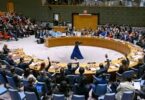Smog continues to envelop parts of Punjab and Khyber Pukhtunkhwa affecting life and vehicular traffic. A spokesperson for the motorway police said different sections of motorway have been closed owing to poor visibility caused by dense smog. Meanwhile the Pakistan Meteorological Department has predicted rains in the upper and central parts of the country, which is likely to wash away dense smog disrupting all kinds of traffic and causing health issues to the people.
The prevailing dry spell has brought thick layer of smog at the advent of winter season. According to German-watch, a think-tank advocating for the prevention of dangerous climate change effects has ranked Pakistan 7th most vulnerable country to climate change. The climate change index risk of Pakistan is 1-10, which is indeed very high. The country witnessed more monsoon rains in summer and dry spell at the arrival of winter.
The problem of air pollution can be tackled to greater extent by traffic control measures, setting and implementing standards for industries to innovate and become cleaner, intensive farming, forestation and reforestation programs. Reduction in per capita energy use can also contribute in fighting this problem. At least 10 cities of Italy reduced the smog level by limiting the auto traffic. Private cars were kept off-the roads three days a week. Public awareness was created to respect the anti-pollution laws.UK introduced new laws when pea-soupier smog killed 12,000 Londoners in 1952. Traffic control is the starting point for battling air pollution. But unfortunately the elite class in Pakistan loves to violate the traffic control norms meant for fighting the problem of air pollution. The disqualified Prime Minister Nawaz Sharif comes to the Accountability Court in a Motor-cadet of 40 plus cars. Same is the case with the sitting President, Prime Minister, Chief Ministers Governors and important federal ministers.
Setting environmental standards for the industries like cement, Sugar, steel and bricks Killen has never been a priority of the government. To add insult to injury, the PML-N government has opted for more than a dozen coals fired thermal power plants instead of going for environment friendly hydropower stations. The coal based thermal power plants are the mother of air pollution. Pakistan is recurrently affected from extreme weather events both in short-term and long-term index. The super floods of 2010 placed it on the top slot among the countries most affected by climate change. Dr. Adil Najam, Dean Frederick S. Pardee School of Global Studies, Boston University rightly says that Pakistan doesn’t need any such reports to tell that it faces serious climate challenges. “The problem is that we continue to refuse to act in the face of clear and present danger. Another report. Another list. Another ranking. Another seminar. Another talk. That will not help as much as action will”, he said. “Unfortunately, our politics and our media is too caught in immediate trivialities-tamashas, really- to pay heed to things that could actually imperil their and their children’s future”, concluded Dr. Najam. He is very right because the ruling PML-N and main opposition PPP are wasting time and energy in settling scores of political propaganda with PTI Chairman Imran Khan. On the other hand, PTI provincial government has successfully completed the billion tree plantation program, abandoned VIP protocol and regulated the burning of coal and tires in bricks Killen and steel re-rolling mills. If the government of Pakistan continues to implement their ill-conceived ad-hoc energy policy and establish power generation plants that are primarily run by fossil fuels, the scenario of smog and climate change will accelerate to such an extent that we will neither be able to cultivate our crops nor the people will breathe clean air.






